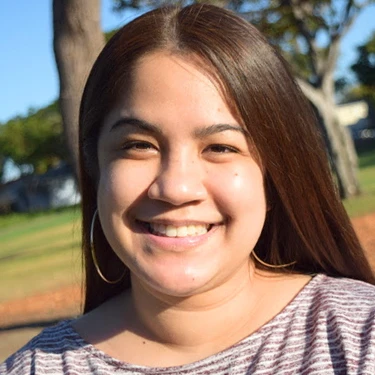Key takeaways:
Tiffany Kairos had to adjust to everyday living when she got an epilepsy diagnosis.
She has learned to advocate for herself from others in the chronic illness community.
Tiffany finds happiness in helping others and living life to the fullest.
Tiffany Kairos is a 36-year-old blogger from Medina, Ohio. She recalls the time around her wedding with a mix of emotions. While she was excited about getting married and starting a new life, it was also the start of a health crisis.
It meant getting diagnosed with epilepsy at the age of 22. It meant adjusting to a new reality with her husband 4 months after they got married.
Far from the wedding present she expected, she put many things on hold. With a whirlwind of emotions, she had to learn what it’s like to live with a chronic condition.
While she was out driving to get birthday and Christmas presents, Tiffany had a seizure, blacked out, and wrecked her car. She had no broken bones and luckily only hit a small tree. But this was the start of what would be frequent seizures. It also meant Tiffany had to stop driving and could no longer work.
More than a few minor adjustments
Circumstances continued to shift under Tiffany’s feet. Since her finances had changed, she and her husband ended up losing their home. They moved in with her mother-in-law until they could sort things out financially.
“I was feeling scared, confused, [and] upset, because my life had just abruptly changed,” she says. “I had to make these adjustments.”


No one in her circle had epilepsy
As the first person in her family to have epilepsy, Tiffany had to figure out a way to navigate this condition. She didn’t know anyone going through what she was. She has refractory epilepsy, which is difficult to control with medication and is hard to treat. She’s had to deal with tough seizures. And she says she sometimes felt like her care team wasn’t listening to her.
Her current provider made her feel more comfortable, she says. Together, they focused on finding ways to deal with almost-daily seizures.
Since her diagnosis, Tiffany has had some time to reflect. Her top three steps to deal with epilepsy are: “Find a good doctor to give you the care you need, connect with a community, and connect with your family.”
She connects online and in her community with people who have dealt with epilepsy. And with her family, she finds support by talking about her feelings, limitations, and needs. She says finding a community that understands is important because, “We may look healthy as a horse on the outside, but on the inside, we are battling chronic illness.”
- NeurontinGabapentin
- PhenobarbitalGeneric Luminal
- KlonopinClonazepam
The power of virtual communication and everyday joys
One of the ways Tiffany cultivated community was through social media. This online community became an extended family that has helped her process, understand, and not feel so alone in her battle.
Through these interactions, she developed a feeling of empowerment to tell her story. That led her to create The Epilepsy Network and Rise Above Epilepsy. She uses these platforms to help people understand what epilepsy is and break down myths about it.
Besides finding joy in advocacy and connection, Tiffany creates moments of joy every day. She has found ways to do certain things without triggering a seizure. She is aware of her limitations and listens to her body to adjust depending on the situation.
To create delight in her life, Tiffany employs little life hacks. Her best life hack so far is taking a relaxing bubble bath.
“People with epilepsy, if you take a bath or you’re in a swimming pool, you’re running the risk of drowning,” she says. So, she has her husband check in on her every 10 minutes or sings so he can hear her. That way, she still has a sense of privacy and time alone to unwind.
She also makes adjustments to safely enjoy movie nights. When there are flashing and flickering lights, Tiffany turns her head and waits for it to pass. Her husband catches her up if she misses anything.
As someone with a chronic condition, she also finds comfort in services such as grocery delivery. She encourages others to make similar adjustments that can be simple things that make life easier.
Connection will carry you through
Epilepsy is an invisible illness Tiffany battles every day. She says she finds strength through others in the community and knows there is power in connecting. She finds satisfaction in helping others advocate for themselves.
“What I’m doing is helping them to really come out of their shell,” she says.
She knows there is no one right way to approach epilepsy. But what works for her, she says, is approaching it “with endurance, courage, and even a bit of humor.”

Why trust our experts?

















